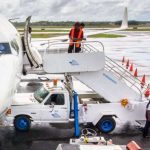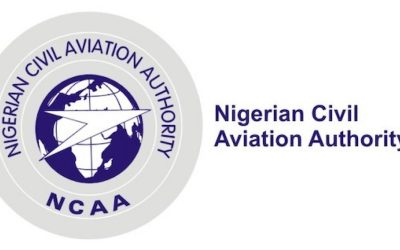CliqJets Consulting
Fostering Growth, Innovation, and Sustainability in Airline Operations

Upholding Aviation Sector Regulations: A Call to Nigerian Airlines and Individuals
In a recent interview with Channels Television, the Minister of Aviation and Aerospace Development in Nigeria, Mr. Festus Keyamo, has warned airline operators and individuals engaging in practices that undermine aviation sector regulations. Promising to crack down on those exploiting licenses meant for private jet use to carry passengers commercially, as well as targeting airlines employing untrained personnel, Keyamo’s stance highlights the critical need for compliance within Nigeria’s aviation sector.
Mr. Keyamo minced no words in his assertion that those found circumventing aviation regulations to exploit licenses meant for private use for commercial purposes will face severe consequences. Furthermore, he highlighted the risks posed by airlines employing untrained personnel, stressing the potential threat to the safety of Nigeria’s airspace and the lives of passengers.
The aviation industry, both globally and domestically, operates under stringent regulations to ensure the safety and security of passengers and airspace. These regulations are not merely bureaucratic hurdles but essential safeguards against potential risks and threats. Therefore, any deviation from these standards poses not only economic implications but also jeopardizes lives and undermines the integrity of the nation’s airspace.
- Strategies for African Airlines to Remain Profitable Amid Global Passenger GrowthThe projected growth in global passenger numbers presents both opportunities and challenges for African airlines. But with proactive and innovative approaches, hey will thrive .
- Synchro-Operationality in Airline Operations: Secret to Efficiency and ProfitabilitySynchro-operationality represents a paradigm shift in airline operations, offering a comprehensive solution to the challenges of efficiency and profitability.
- Difference Between Ground Handling and Flight Dispatch in Airline OperationsUnderstanding the distinct roles of ground handling and flight dispatch helps to appreciate the complexities involved in airline operations
- Incentives for Desired Behavior a Reward for AirlinesCreating incentives for desired behavior in airlines can be highly rewarding as it leads to improved efficiency, cost savings, and customer satisfaction
Aviation Sector: Exploitation of Licenses
Exploiting licenses designated for private jet use to conduct commercial operations violates regulatory frameworks and distorts market dynamics, disadvantaging compliant operators and fostering unfair competition. Moreover, such practices compromise safety standards, as these licenses are tailored for specific purposes and may lack the rigorous oversight necessary for commercial aviation.
Furthermore, the employment of untrained personnel in airline operations poses significant risks to passenger safety and operational efficiency. Competent and adequately trained staff are fundamental pillars of a robust aviation system, ensuring adherence to protocols, emergency response capabilities, and overall service quality. Neglecting these standards not only endangers lives but also tarnishes the reputation of the entire aviation industry.
Cliqjets Consulting Team Recommendations
To address these pressing concerns and uphold the integrity of Nigeria’s aviation sector, airline owners and individuals must prioritize compliance and adherence to regulatory standards. This necessitates:
- Strict Adherence to Regulations: Airlines and individuals must comply unequivocally with aviation regulations, refraining from exploiting loopholes or engaging in unauthorized practices.
- Investment in Training and Development: Airlines must prioritize safety by ensuring that all personnel involved in airline operations are adequately trained and certified. This includes pilots, maintenance crew, and ground staff. Investing in comprehensive training programs and regularly updating skills and knowledge are essential steps in maintaining operational excellence and ensuring the safety of passengers and crew.
- Transparency and Accountability: Open communication and transparency in business practices foster trust and accountability within the industry. Airlines should operate with integrity, ensuring transparency in licensing, operations, and personnel management.
- Collaboration with Regulatory Authorities: Collaboration between industry stakeholders and regulatory bodies is essential for effective oversight and enforcement of aviation standards. Airlines should actively engage with regulatory authorities, seeking guidance and adhering to directives.
- Public Awareness and Education: Promoting awareness among passengers and the public regarding aviation safety standards and regulations fosters a culture of accountability and encourages informed decision-making.
Failure to adhere to these recommendations not only exposes airlines and individuals to legal repercussions but also undermines the broader goals of safety, efficiency, and sustainability within Nigeria’s aviation sector.
Call to Action
Regulatory authorities should intensify efforts to monitor and enforce compliance within the aviation sector. This includes conducting regular inspections, audits, and investigations to identify and address any instances of non-compliance or safety concerns promptly.
Conclusion
The recent warnings issued by Mr. Festus Keyamo serve as a clarion call for all stakeholders within Nigeria’s aviation industry to uphold the highest standards of compliance and safety. It is incumbent upon airline operators and individuals to desist from practices that compromise regulatory integrity and jeopardize the safety of passengers and airspace. By prioritizing adherence to regulations, investing in training and development, and fostering transparency and collaboration, Nigerian airlines can contribute to a safer, more resilient aviation ecosystem for the benefit of all.









0 Comments